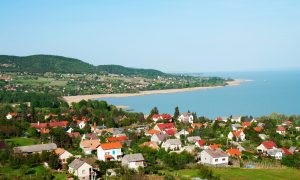In recent years, Hungary, with its relatively liberalimmigrantspolicies, quality living environment and lower cost of living have made it a popular choice for European immigrants. Compared to Western European countries, Hungary's house prices, prices and taxes are more friendly, which makes many people who wish to immigrate to Europe set their sights on this country in Central Europe. Then.Immigration to HungaryHow much does it really cost? In this article, we will provide a comprehensive analysis of the cost of living in Hungary in terms of visa and immigration fees, housing, daily expenses, healthcare, education and more.
One,Immigration to HungaryBasic costs
The cost of immigrating to Hungary depends on the different ways of immigrating, and there are currently several main routes:
1. investment immigration
The Hungarian government reintroduced in 2024investment immigrationThe plan, the main investment methods and costs are listed below:
- Investment of government funds: at leastEuro 250,000Holding for 5 years
- Real estate investment: at leastEuro350,000Holding for 5 years
- business investment: at leastEuro 150,000Suitable for Entrepreneurs
In addition to the investment itself, the applicant is required to payAttorney's fees, government filing fees, translation fees, notarization of materialsetc., approximately5,000-10,000 eurosThe
2. Work visa orskilled migrant
If the Hungarian residency is obtained through the employment or skilled migration route, the main costs include:
- Work Visa Application Fee:: ApproximateEuro100-200
- Residence Card Application Fee:: Approximate110 euros
- Processing materials and notary fees:: Approximate500 euros
compareinvestment immigrationThe cost of skilled migration is low, but there are certain requirements for applicants' skills, education and employers' needs.
3. Student visas and family reunification immigration
International students can apply for a residence permit through study abroad and subsequently change to permanent residence through work or marriage.
- Visa Fees:: ApproximateEuro60-100
- Residence Card Application Fee:: Approximate110 euros
- Tuition (public universities):: ApproximateEuro 1500-8000/year(Some specialties are more expensive)
- living costs:: Approximate500-1000 Euro/month
If you apply for immigration through family reunification, it mainly involves visa fees and residence application fees, and the overall cost is low.
II. Housing costs: rent or buy?
Housing is one of the main expenses after migration, and the cost of renting and buying a house in Hungary varies from region to region.
1. Rental costs
Budapest is the most expensive city in Hungary, but rents are still low compared to Western Europe:
- Studio apartment (city center):: Approximate500-800 Euro/month
- Two-bedroom apartment (city center):: Approximate800-1200 Euro/month
- Suburban Rentals:: ApproximateEuro300-600/month
Cities outside Budapest, such as Szeged, Debrecen, Pécs, etc., have cheaper rents.Two-bedroom apartments rent for about 300-600 Euro/monthThe
2. Housing costs
Compared to Western European countries, Hungary's house prices are still low enough for long-term residence or investment:
- Budapest city center:: Approximate4000-6000 Euro/㎡
- Budapest suburbs:: Approximate2,000-3,500 Euro/m2
- Other cities:: Approximate1000-2000 Euro/㎡
Generally speaking, the minimum cost of purchasing a home requiresAround 100,000 euros, but prices are higher in popular areas.
III. Daily living expenses
Prices in Hungary are lower than in Western Europe, making daily expenses more affordable.
1. Food expenses(Approximately monthly)Euro150-300/person)
Example of supermarket shopping prices:
- Milk (1 liter): approx.1 Euro
- Bread (500g): approx.EUR 1.2
- Chicken breast (1 kg): approx.7 euros
- Eggs (12): approx.3 euros
- Potatoes (1 kg): approx.EUR 1.2
- Restaurant meal (regular restaurant): approx.8-15 Euro/meal
- Fine dining (dinner for two): approx.Euro40-80
2. Utilities and networks(Approximately monthly)Euro100-200)
- Basic utilities for apartment (1-2 people):Euro50-100
- Heating costs (winter):Euro50-150
- Internet and cell phone packages:Euro30-50
IV. Health insurance and education costs
The Hungarian healthcare system is robust and offers both public and private healthcare services.

1. Medical insurance
- Public health insurance: monthly averageEuro30-50Most medical services are free of charge
- Private health insurance: monthly averageEuro100-300Enjoy better service
2. Cost of education
- Public primary and secondary schools: free of charge
- International School:6000-15000 Euro/year
- University tuition (public):Euro 1500-8000/year
- Private universities:10,000-25,000 euros/year
For immigrant families, international schools are one of the major educational expenses.
V. Transportation costs
Public transportation in Hungary is well developed and less expensive:
- Monthly public transportation pass (Budapest)::27 euros
- starting price for a cab::2.5 euros
- Short distance train tickets within the city::5-10 euros
If you purchase a car, used car prices range from3,000 eurosStarting from, and with new car prices aroundMore than 15,000 eurosThe

VI. Estimation of the overall cost of emigration to Hungary
Depending on the situation, the cost of migrating to Hungary is estimated as follows:
| Cost category | Budgetary scope (in euros) |
|---|---|
| investment immigration | 150,000-350,000+ |
| Immigration application fee | 5000-10000 |
| Rental (years) | 3600-14400 |
| Purchase (one-time) | 100,000-300,000+ |
| Living expenses (annual) | 6000-15000 |
| Medical insurance (years) | 400-3000 |
| Education costs (annual) | 1500-15000 |
| Transportation costs (annual) | 500-2000 |
VII. Summary
The relatively low cost of living in Hungary is suitable for migrant groups with different budgets. Whether it is investment migration, skilled migration, or obtaining status through work or study, Hungary offers good value for money. If you wish to enjoy a high quality of life in Europe while keeping your expenses under control, theImmigration to HungaryUndoubtedly an ideal choice!






